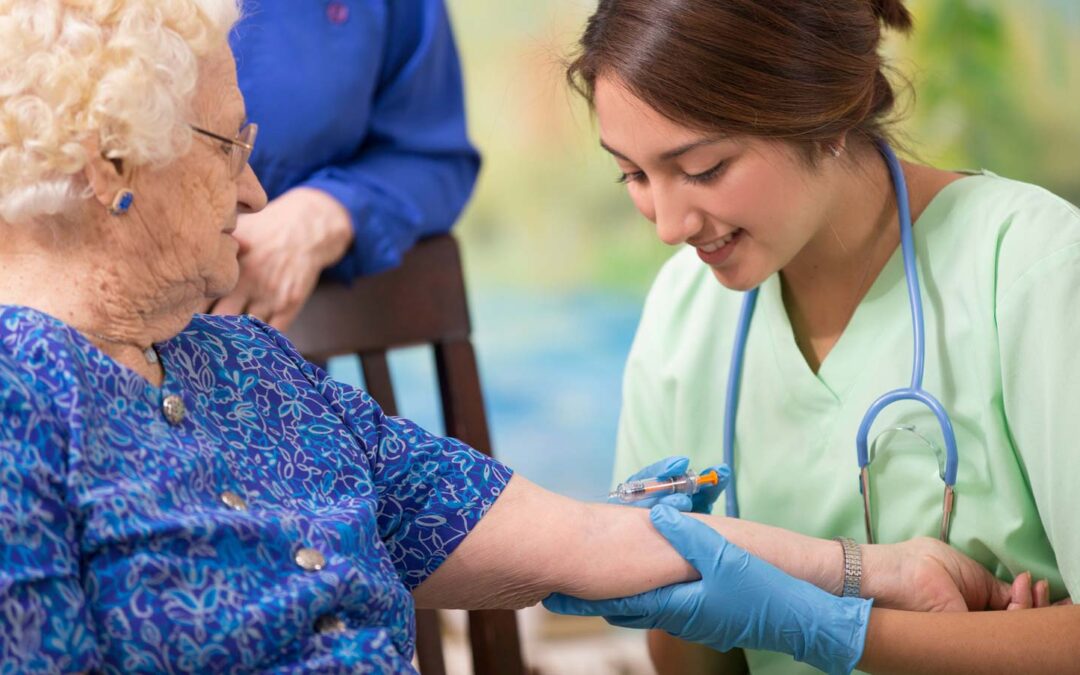Introduction: As the population ages, the demand for high-quality medical care within care homes for seniors continues to grow. Providing comprehensive medical services tailored to the unique needs of elderly residents is essential for ensuring their health, well-being, and overall quality of life. In this article, we’ll explore various aspects of medical care within care homes and strategies to enhance the delivery of healthcare services to elderly residents.
- Multidisciplinary Care Teams: Effective medical care within care homes requires the collaboration of multidisciplinary teams comprising physicians, nurses, pharmacists, therapists, and social workers. These teams work together to assess residents’ medical needs, develop personalized care plans, and coordinate treatments and interventions. By pooling their expertise and resources, multidisciplinary care teams can address complex health issues comprehensively and provide holistic care to seniors.
- Regular Health Assessments: Regular health assessments are essential for identifying and monitoring seniors’ medical conditions, functional abilities, and overall well-being. Care homes should conduct thorough initial assessments upon admission and periodic reassessments thereafter to track residents’ health status and address any changes or concerns promptly. These assessments may include physical examinations, cognitive screenings, medication reviews, and evaluations of activities of daily living.
- Medication Management: Many seniors residing in care homes require multiple medications to manage chronic conditions, alleviate symptoms, and maintain their health. Effective medication management is crucial for ensuring the safe and appropriate use of medications while minimizing adverse drug reactions and interactions. Care homes should implement robust medication management protocols, including medication reconciliation, regular reviews, monitoring for side effects, and patient education to promote adherence.
- Chronic Disease Management: Chronic diseases such as diabetes, hypertension, heart disease, and arthritis are common among elderly individuals and require ongoing management and support. Care homes should develop specialized programs and interventions for managing chronic conditions, including regular monitoring of vital signs, blood glucose levels, and medication adherence. Collaborating with primary care providers and specialists ensures coordinated care and optimized treatment outcomes for seniors with chronic diseases.
- Fall Prevention: Falls are a leading cause of injury and hospitalization among seniors, particularly those residing in care homes. Implementing fall prevention strategies is crucial for reducing the risk of falls and minimizing their impact on residents’ health and well-being. Best Care homes can enhance fall prevention efforts by conducting fall risk assessments, modifying environmental hazards, providing mobility aids, and implementing exercise programs to improve strength and balance.
- Palliative and End-of-Life Care: As seniors age, they may face complex medical conditions and end-of-life issues that require specialized care and support. Care homes should offer comprehensive palliative and end-of-life care services to ensure that residents receive compassionate and dignified care during their final stages of life. This may include pain management, symptom control, emotional and spiritual support, advance care planning, and coordination of care with hospice providers.
- Telehealth and Technology: Advancements in telehealth and technology offer opportunities to enhance medical care delivery within care homes, particularly in remote or underserved areas. Telehealth services enable seniors to access medical consultations, monitoring, and follow-up care remotely, reducing the need for unnecessary hospitalizations or emergency room visits. Care homes can leverage telehealth platforms, remote monitoring devices, and electronic health records to improve efficiency, communication, and continuity of care.
- Staff Training and Education: Investing in staff training and education is essential for maintaining high standards of medical care within care homes and ensuring that staff members have the knowledge, skills, and competencies to meet residents’ needs effectively. Care homes should provide ongoing training on topics such as geriatric care, dementia management, infection control, medication administration, and communication skills. By empowering staff with the necessary tools and resources, care homes can deliver quality medical care and enhance resident outcomes.
Providing comprehensive medical care inside care homes for seniors requires a multifaceted approach that addresses the diverse and evolving needs of elderly residents. By implementing strategies such as multidisciplinary care teams, regular health assessments, medication management, chronic disease management, fall prevention, palliative care, telehealth, technology integration, and staff training, care homes can optimize the delivery of healthcare services and improve the overall quality of life for seniors in their care.
